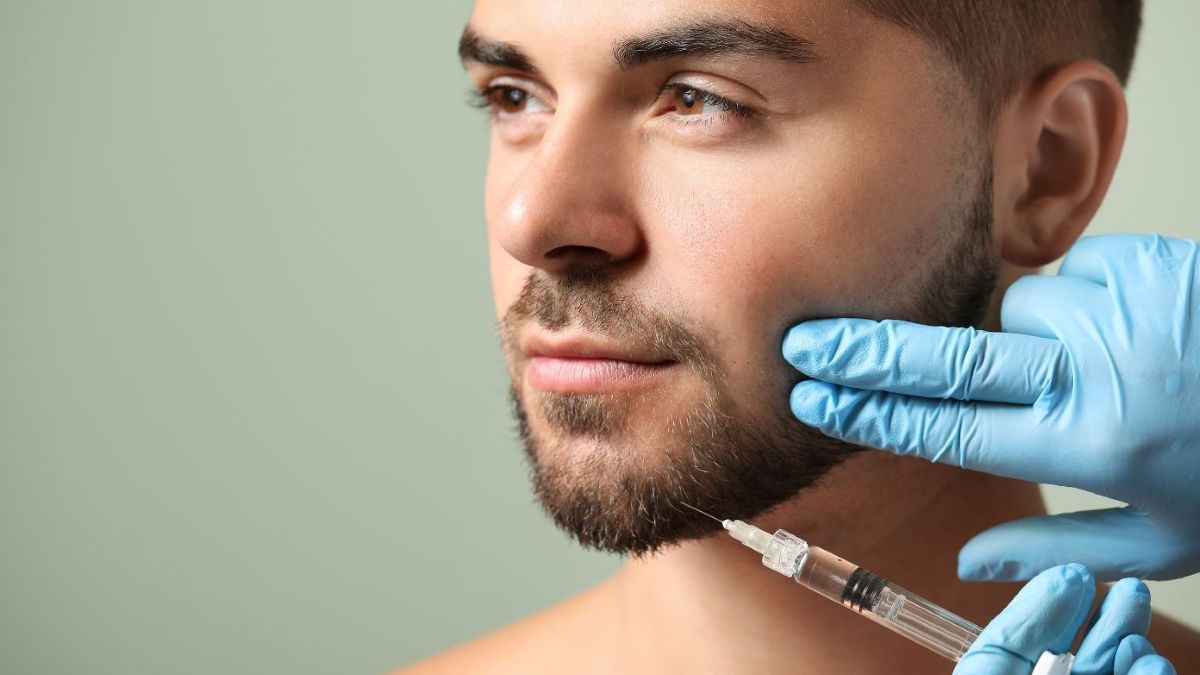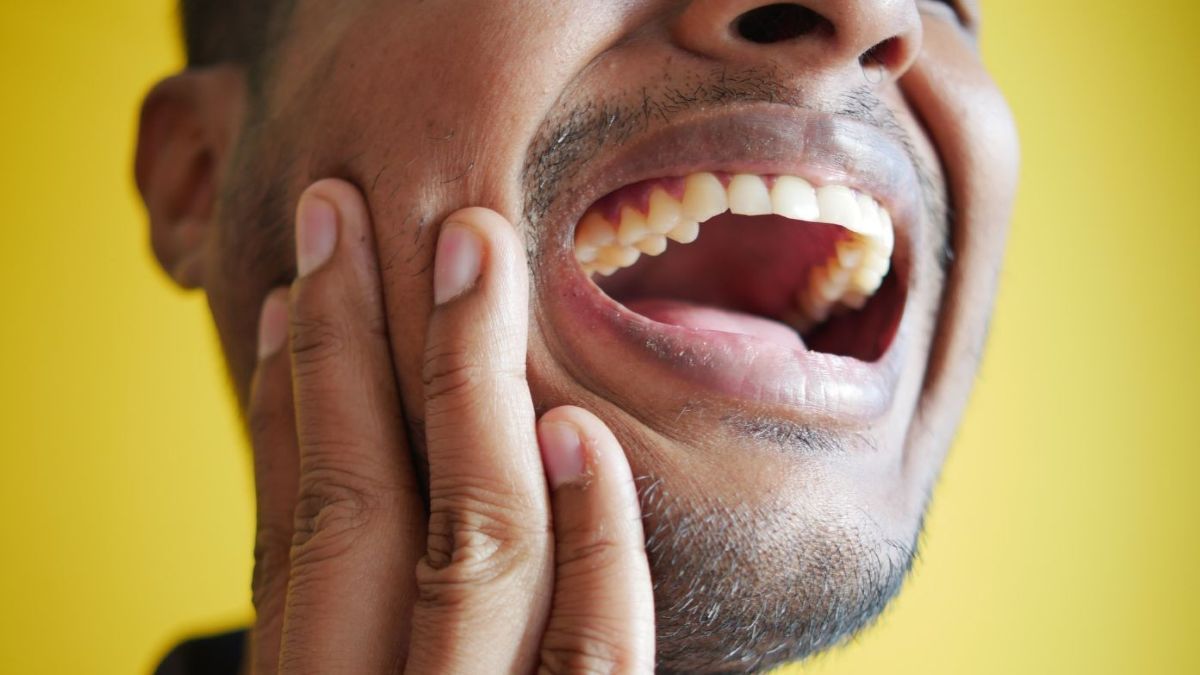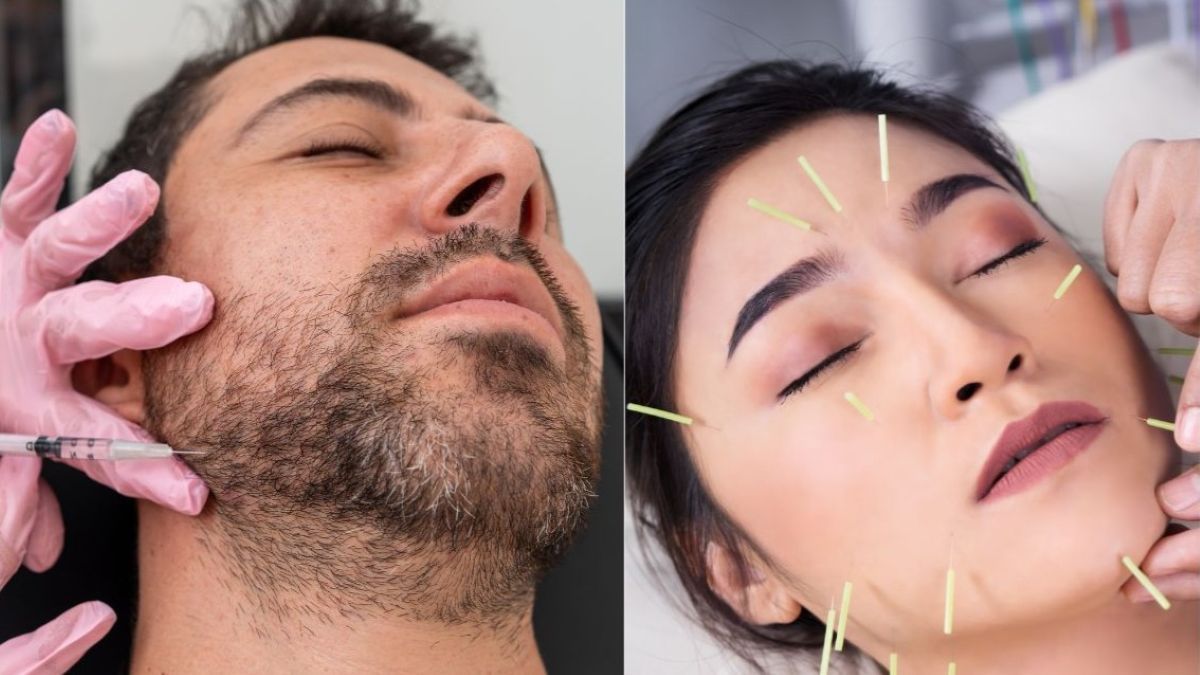Acupuncture vs. Botox for TMJ: A Tribeca Smiles Guide to Choosing What's Right for You
Key Takeaways
- Acupuncture vs. Botox for TMJ represents two fundamentally different treatment philosophies - one works to restore natural muscle balance while the other temporarily paralyzes overactive muscles
- Botox provides quick relief lasting 3-6 months but requires repeated injections and doesn't address underlying causes like stress or misalignment
- Acupuncture offers cumulative, potentially long-lasting benefits by treating root causes including stress, though it requires multiple sessions for optimal results
| Table of Contents |
|---|
| 1. Acupuncture vs. Botox for TMJ: Understanding Your Options |
| 2. Understanding TMJ: More Than Just Jaw Pain |
| 3. How Botox Works for TMJ Relief |
| 4. How Acupuncture Addresses TMJ Naturally |
| 5. Direct Comparison: Which Treatment Makes Sense for You? |
| 6. Beyond Just Needles: Integrative Dental Acupuncture |
| 7. Who Benefits Most from Each Treatment? |
| 8. The Role of Stress in TMJ Treatment Success |
| 9. Making an Informed Decision |
| 10. Your Path to TMJ Relief Starts Here |
| 11. Frequently Asked Questions |

Acupuncture vs. Botox for TMJ: Understanding Your Options
Living with TMJ disorder can turn simple daily activities into painful challenges.
When comparing acupuncture vs. Botox for TMJ treatment, it's important to understand that these approaches couldn't be more different in how they work.
That persistent jaw ache, the clicking when you eat, those tension headaches that just won't quit - if you're dealing with these symptoms, you've probably started researching both options.
One temporarily freezes your muscles into submission. The other helps retrain them to function properly. So which approach makes more sense for lasting relief?
Understanding TMJ: More Than Just Jaw Pain
TMJ disorders affect the temporomandibular joint - that crucial hinge connecting your jawbone to your skull.
When this joint isn't working right, you might experience:
- Jaw pain or tenderness
- Difficulty chewing
- Facial pain that radiates
- Clicking and popping sounds
- Getting stuck with your mouth open or closed
What Causes TMJ Problems?
It's rarely just one thing.
Stress plays a huge role - when you're anxious, you clench your jaw without realizing it.
Teeth grinding at night (bruxism) puts tremendous pressure on the joint.
Other common triggers include:
- Poor posture
- Misaligned teeth
- Arthritis
- Jaw injury
That's why treating TMJ effectively means looking at the whole picture, not just the symptoms.
Traditional Treatment Approaches
The traditional first-line treatments include:
- Self-care strategies
- Physical therapy
- Oral splints
- NSAIDs and muscle relaxants
- Stress management techniques
But when these conservative approaches don't provide enough relief? Patients often find themselves weighing options like acupuncture for TMJ pain versus Botox injections.

How Botox Works for TMJ Relief
Botox for TMJ might sound surprising if you only know it as a wrinkle treatment.
But its muscle-paralyzing properties make it useful for jaw problems too.
The Treatment Process
The treatment involves injecting botulinum toxin directly into:
- Masseter muscles (those powerful chewing muscles)
- Temporalis muscles (on the sides of your head)
Here's what happens:
Botox blocks the signals between nerves and muscles. Without these signals, the muscles can't contract with their usual force.
Quick Facts About Botox for TMJ
- Treatment time: 15-20 minutes
- Typical dosage: 30-50 units (severe cases up to 100)
- Initial improvement: Within a few days
- Full effects: 2-4 weeks after injection
For people who grind their teeth or clench constantly, this forced relaxation can bring significant relief.
The Temporary Nature of Botox
Here's what many people don't realize about Botox for TMJ - it's strictly a temporary fix.
- Duration: 3 to 6 months (sometimes longer if you're lucky)
- Cost: $300-$600 per treatment
- Insurance: Rarely covered
Then your muscles gradually return to their previous state, and you'll need another round of injections. Those repeat visits add up quickly.
Potential Concerns with Long-Term Use
Cost isn't the only consideration.
Recent studies have raised red flags:
- Bone density loss in the jaw with repeated treatments
- Muscle atrophy - your jaw muscles can weaken and shrink
- Asymmetrical smile in some patients
- Difficulty chewing certain foods
Research published by theNational Institutes of Health confirms these potential risks.
And here's the crucial point:
Botox doesn't address why you're clenching or grinding in the first place.
If stress is driving your TMJ symptoms, those tense muscles will return once the Botox wears off.
How Acupuncture Addresses TMJ Naturally
Acupuncture for stopping teeth grinding takes a completely different approach.
Instead of paralyzing muscles, it works to restore their natural balance and function.
The Treatment Approach
During treatment at Tribeca Smiles, ultra-thin needles are placed at specific points:
- Near the jaw
- On the hands
- On the feet
- Around the ears
This might seem odd - why put needles in your feet for jaw pain?
In Traditional Chinese Medicine, these points connect through energy pathways called meridians.
How Acupuncture Helps TMJ
Modern research suggests acupuncture triggers several biological responses:
Endorphin release
Your body produces its own natural painkillers, providing drug-free relief without side effects.
Improved circulation
Better blood flow to the jaw area helps reduce inflammation and promotes healing of damaged tissues.
Muscle relaxation
Rather than forcing muscles to stop working, acupuncture helps them release tension naturally. This can improve your range of motion and reduce that tight, locked feeling.
Nervous system regulation
This is huge for TMJ sufferers.
Acupuncture helps shift your body from fight-or-flight mode into a calmer state. Since stress is a major TMJ trigger, addressing this root cause can prevent symptoms from returning.
The Cumulative Benefits of Acupuncture
Unlike Botox, where effects fade predictably, acupuncture benefits tend to build over time.
Treatment progression:
- First session: Few hours or days of relief
- Sessions 3-4: Improvements lasting a week or more
- Full series (6-12 sessions): Months or even years of reduced symptoms
Treatment schedule:
- Acute pain: 2-3 times per week
- Maintenance: Weekly or biweekly
- Session length: 30-60 minutes
While this requires more initial time commitment than a quick Botox injection, you're investing in teaching your body to function better rather than just masking symptoms.
What the Research Shows
The research on acupuncture for TMJ is promising, though scientists agree more large-scale studies are needed.
A randomized clinical trial comparing acupuncture to standard care found:
- Significant pain reduction
- Improved jaw function
- Better sleep quality
- Reduced headaches
- Lower stress levels
Patients weren't just experiencing less pain - they were addressing multiple aspects of their condition simultaneously.

Direct Comparison: Which Treatment Makes Sense for You?
When comparing acupuncture vs Botox for TMJ, several factors come into play:
Treatment Philosophy
Botox: Symptom management
Stops the muscle from working but doesn't fix underlying problems.
Acupuncture: Restoration
Helps your body heal itself and addresses root causes like stress or energy imbalances.
Speed of Relief
Botox wins for rapid results.
Within 2-4 weeks, you'll likely experience significant improvement.
Acupuncture works more gradually.
Benefits accumulate over several sessions. However, many patients report some immediate relief from their first treatment, especially regarding tension and stress.
Duration of Benefits
Botox: 3-6 months, period
Then you need more injections.
Acupuncture: Variable but potentially long-lasting
Can become permanent for some patients, especially when combined with lifestyle changes.
Safety Profile
Acupuncture:
- Minimal side effects
- Occasional minor bruising
- Temporary soreness at needle sites
Botox:
- Potential smile asymmetry
- Muscle weakness
- Long-term bone density concerns
- Not FDA-approved for TMJ (off-label use)
Cost Breakdown
Botox:
- $300-600 per treatment
- Fewer initial visits
- Ongoing costs every 3-6 months
Acupuncture:
- $75-150 per session
- More sessions initially
- May reduce or eliminate need for ongoing treatment
Over a year, costs often even out. But acupuncture may prove more economical long-term if it reduces your need for ongoing treatment.
Insurance coverage varies widely. Some plans cover acupuncture for pain management, while Botox for TMJ is rarely covered since it's considered experimental.
Beyond Just Needles: Integrative Dental Acupuncture
At Tribeca Smiles, Dr. Danielle Solomon brings a unique perspective.
She's both a dentist and licensed acupuncturist.
This dual expertise means understanding exactly how jaw mechanics, tooth alignment, and muscle function interact with TMJ symptoms.
What Makes Dental Acupuncture Different?
Dental acupuncture goes beyond standard acupuncture by incorporating specific techniques for oral and facial conditions.
Point selection considers:
- Pain relief
- Dental health support
- Gum inflammation reduction
- Dental anxiety management
The treatment might also address related issues TMJ sufferers face:
- Chronic headaches
- Neck pain
- Sleep problems
- Stress patterns
By treating these interconnected symptoms, patients often experience improvements in their overall quality of life, not just jaw function.
Who Benefits Most from Each Treatment?
Consider Botox if:
✓ You need rapid relief for a special event or situation
✓ Your TMJ involves severe muscle hyperactivity that hasn't responded to other treatments
✓ You're willing to commit to regular reinjections every few months
✓ You're okay with temporary symptom management rather than addressing root causes
✓ Cost and insurance coverage aren't major concerns
Choose Acupuncture if:
✓ You prefer natural, drug-free treatment options
✓ You want to address underlying stress and tension patterns
✓ You're looking for a long-term solution, not just temporary relief
✓ You have time for multiple treatment sessions initially
✓ You're interested in improving overall health alongside TMJ symptoms
✓ You want to avoid potential side effects of neurotoxin injections
The Role of Stress in TMJ Treatment Success
Here's something neither treatment can ignore:
Stress management is crucial for TMJ recovery.
Whether you choose Botox or acupuncture, addressing daily stressors improves outcomes significantly.
Why Acupuncture Has an Edge
Acupuncture naturally:
- Reduces stress hormones
- Promotes deep relaxation
- Improves sleep quality
- Breaks the stress-clench-pain cycle
Many patients report feeling calmer and sleeping better after treatments.
Botox might stop the clenching temporarily, but if you're still stressed? That tension finds other outlets:
- Neck pain
- Headaches
- Digestive issues
Complementary Approaches That Help
Consider these regardless of your primary treatment choice:
Cognitive behavioral therapy
Helps identify and change stress responses
Meditation or yoga
Reduces overall tension in the body
Simple breathing exercises
Throughout the day to prevent jaw clenching
Posture awareness
Poor posture contributes to jaw tension
Making an Informed Decision
Choosing between acupuncture and Botox for TMJ isn't just about picking the "better" treatment.
It's about finding what aligns with:
- Your health philosophy
- Your lifestyle
- Your treatment goals
Common Treatment Paths
Some patients try Botox first for quick relief, then transition to acupuncture for long-term management.
Others start with acupuncture and only consider Botox if natural approaches don't provide enough improvement.
There's no universal right answer. But understanding how each treatment works helps you make an informed choice.
The Multi-Faceted Approach
Remember that TMJ treatment often requires addressing multiple factors:
- Posture correction
- Diet modifications
- Sleep position adjustments
- Stress level management
Whether you choose needles that heal or needles that numb, tackling these contributing factors improves your chances of lasting relief.
Your Path to TMJ Relief Starts Here
TMJ pain doesn't have to control your life. Whether you're drawn to acupuncture's natural healing approach or considering Botox for rapid relief, the key is working with providers who understand the complexity of jaw disorders.
AtTribeca Smiles, we offer comprehensive TMJ evaluation and treatment options, includingspecialized dental acupuncture that addresses not just symptoms but underlying causes.
Our integrated approach combines dental expertise with holistic healing methods, providing personalized treatment plans that work with your body's natural healing abilities.
Ready to explore your TMJ treatment options? Schedule a consultation with Dr. Danielle Solomon to discuss whether acupuncture, other therapies, or a combination approach would work best for your specific situation.
Frequently Asked Questions
How long does it take to see results from acupuncture for TMJ?
Some patients experience immediate relief, particularly from tension and stress. However, significant improvement typically occurs after 3-4 sessions, with optimal results after completing a full series of 6-12 treatments.
Is Botox for TMJ FDA-approved?
No, the FDA has not approved Botox specifically for TMJ disorders. It's used "off-label" for this purpose, though it is FDA-approved for other conditions. The FDA recently approved Botox for platysma bands in the neck, but TMJ remains an off-label use.
Can I combine acupuncture with other TMJ treatments?
Yes, acupuncture works well alongside other conservative treatments like physical therapy, oral splints, and stress management techniques. Many patients find combination approaches most effective.
How many units of Botox are needed for TMJ?
Most patients require 30-50 units total, divided between the masseter muscles. Severe cases might need up to 100 units. Your provider will determine the appropriate dose based on muscle size and symptom severity.
Does insurance cover acupuncture for TMJ?
Coverage varies by plan. Some insurance companies cover acupuncture for pain management, including TMJ-related pain. Check with your provider about specific coverage details.
What are the long-term risks of Botox for TMJ?
Recent studies suggest potential bone density loss in the jaw and muscle atrophy with repeated use. Some patients also develop resistance to Botox over time, requiring higher doses for the same effect.



